Iran Once Again Blames NATO For Crisis In Ukraine
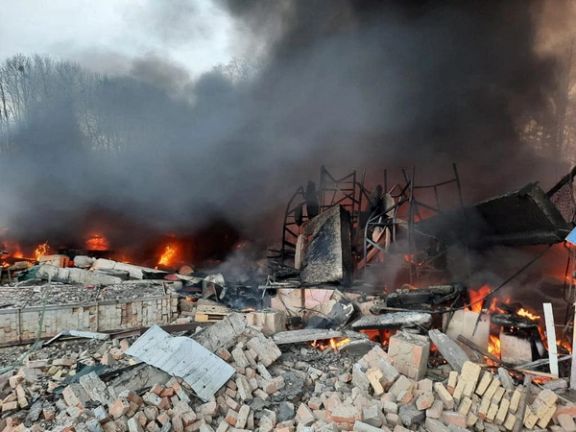
Iran has once again reiterated support for Russia in the Ukraine conflict, saying the crisis is rooted in NATO's provocations.

Iran has once again reiterated support for Russia in the Ukraine conflict, saying the crisis is rooted in NATO's provocations.
Foreign Minister Hossein Amir-Abdollahian said in a tweet on Thursday however that Tehran doesn't believe that “resorting to war is a solution”.
the need for an “imperative to establish ceasefire and to find a political and democratic resolution”.
Also on Thursday, Foreign Ministry spokesman Saeed Khatibzadeh said that Tehran is monitoring Ukraine developments with deep concern, noting that “US-led provocations” have created a situation which is taking Eurasia toward an all-out crisis.
Khatibzadeh said Iran urges both sides to stop armed conflict and declare ceasefire to start talks.
He also urged all Iranian citizens living in Ukraine to stay away from dangerous areas, adding that the Foreign Ministry is trying to obtain necessary permissions for one or more special flights to evacuate Iranians from some parts of Ukraine.
Iran’s embassy in Kiev issued a statement on Wednesday, calling on Iranian nationals livening in Ukraine, especially students, to leave the country "temporarily".
Early on Thursday, Russian President Vladimir Putin announced a “special military operation” in the eastern Ukraine regions of Donetsk and Lugansk, claiming that he had ordered the operation after the leaders of the self-proclaimed republics of asked the Kremlin for military assistance.
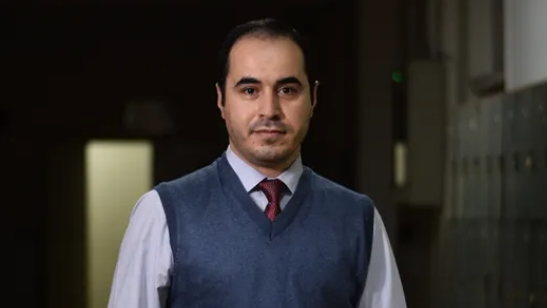
Family and friends of dissident blogger and internet freedom activist Hossein Ronaghi say security forces have 'abducted' him and his whereabouts are unknown.
Masoud Kazemi, a dissident journalist and close friend of Ronaghi who resides in Turkey, told Iran International that he went off the grid at around 11:00 AM Wednesday near his house after leaving for work.
"We don't know who has taken him or where he is being held," Kazemi said, adding that Ronaghi had received several intimidating phone calls in the past few days, allegedly from security forces.
In a tweet Wednesday, Ronaghi's brother Hassan, also an activist, said Supreme Leader Ali Khamenei's office, the Revolutionary Guards, and the Judiciary should be accountable for anything that may happen to him. Ronaghi's father Reza Ronaghi in an interview with Radio Farda Wednesday also said Khamenei was directly responsible for his son's life.
Ronaghi was arrested, along with his brother Hassan, in the aftermath of the disputed presidential elections in 2009 for issuing proxies that allowed journalists and political activists to circumvent internet censorship. He was also charged with insulting Khamenei in his blog posts.
Ronaghi was one of the first to focus his activities against a bill proposed by hardliner lawmakers to introduce highly restrictive internet policies. The bill which is ironically called ‘Users Protection Plan’ and its approval by an ad hoc parliamentary committee with the authority to approve it without putting it to debate on the floor has caused serious concern among Iranians.
"If you can't write the truth about the "Protection Plan" and internet censorship in Iran, do not bury the truth. The Protection Plan was a decision made by the entire regime based on the demand from Islamic Republic's leader who had stated: "Virtual space must be controlled, Ronaghi tweeted on Wednesday before his disappearance.
Khamenei has complained on many occasions, including in a speech on March 21, 2021, that the cyberspace is "unbridled" and should not be "surrendered to the enemy".
According to Amnesty International, Ronaghi was badly tortured in prison after his arrest in 2009 and underwent at least four operations to fix his damaged kidney which could not be saved and had to be removed.
In an interview with Germany's Bild published on January 28, Ronaghi spoke about losing his kidney while in Evin Prison. "I'm still suffering from the effects of the torture, but the good thing is that I'm still alive and can continue," he said. "It was a cruel time; I was sick and didn't get any medical attention. My brother was also arrested and brutally tortured in front of me. I am currently living with one kidney. I've lost a lot, but not my courage," he told Bild.
In recent interviews with foreign media -- which his friend Masoud Kazemi says his arrest may be related to -- Ronaghi has also criticized western media for ignoring violations of human rights in Iran. "Western media aren’t telling you the truth about Iran. For us, it is as if there are two Irans—the one where we live and another that you read about. Reporters [of foreign media] would rather tweet about the weather than investigate repression and torture," Ronaghi told the Wall Street Journal in October.
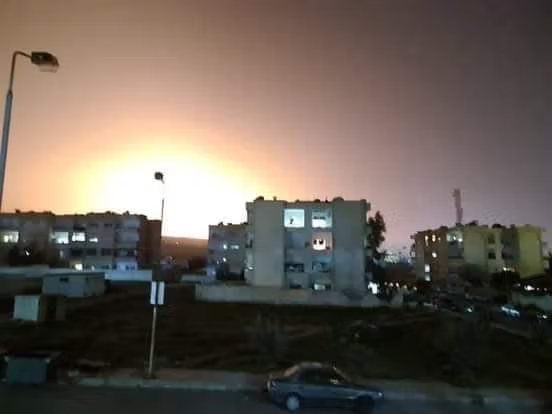
Syria says Israel launched several missiles from the Golan Heights at targets around Damascus, causing several casualties and material damage.
According to the Syrian Observatory of Human Rights (SOHR), a war monitor, the attacks in the early hours of Thursday, targeted posts and weapons warehouses of Iran-backed militias in the vicinity of Damascus international airport.
There were also reports of missile attacks in areas around the border province of Quneitra on Wednesday, where Israel allegedly fired surface-to-surface missiles, causing material damage to an observation post and a building.
Iran International reported earlier this month that Iran-backed militias are setting up settlement along the Israeli border, to be used for attacks against Israel.
Some other missiles targeted the air-defense system in areas along Al-Keswah and Al-Syidah Zaynab districts in south of Damascus. The official Syrian Arab News Agency (SANA) said several explosions were seen over the skies of the capital and its outskirts as Syria’s air defenses intercepted some of the strikes.
Syria’s state media said three people were killed in the attacks while SOHR put the number of casualties at six, saying the attacks killed two members of the Syrian forces and four members of Iran-backed militias, whose nationalities remain unknown.
In a rare statement earlier in February, the Israeli army acknowledged attacks inside Syria, saying it struck Syrian facilities used in targeting Israeli aircraft, including a radar and anti-aircraft batteries.
Israel has launched hundreds of strikes on targets inside government-controlled parts of Syria mostly since 2017, but it rarely acknowledges or discusses such operations.
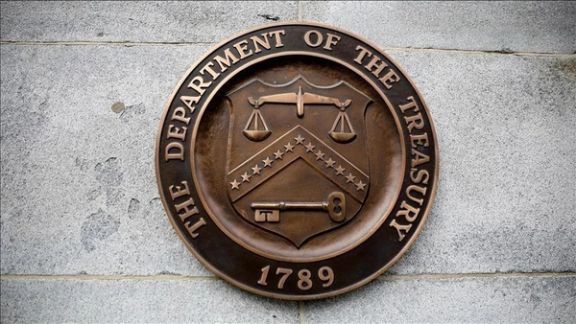
The United States Wednesday sanctioned an international network run by Iran’s Revolutionary Guard and a Houthi financier providing tens of millions of dollars to Yemen’s Houthi rebels.
The complex web of individuals and front companies shipped fuel, other petroleum products and commodities throughout the Middle East, Africa and Asia, with the proceeds financing Houthi attacks in Yemen and on its neighbors, a Treasury statement said.
The action freezes any assets of the designated entities and individuals that are subject to US jurisdiction and generally bars Americans from doing business with them.
The US closely coordinated the designations with its Gulf partners, Secretary of State Antony Blinken said in a statement. He urged the Houthis to "end their campaign of violence" and renew peace talks.
The new designations come as the United Arab Emirates, Saudi Arabia and some American lawmakers press the White House to return the Houthi movement to the US list of foreign terrorist groups in response to recent Houthi drone and missile strikes on the UAE and Saudi Arabia.
Republican former President Donald Trump placed the Houthis on the list 10 days before leaving office, triggering financial sanctions. Democratic President Joe Biden reversed the move, a year ago.
The individuals and firms targeted on Wednesday are part of a network overseen by the Qods Force, the elite arm of Iran's Islamic Revolutionary Guard Corps, and Said al Jamal, a Houthi financier sanctioned last year, the Treasury said.
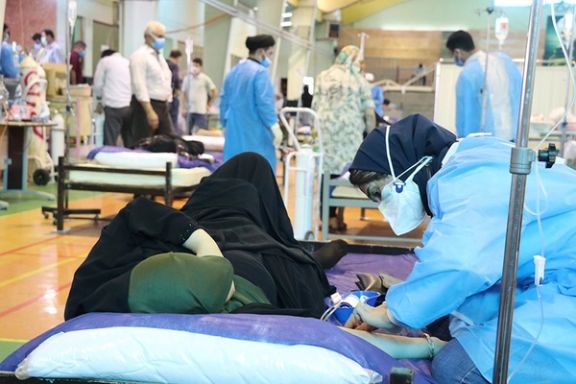
Iran is enduring its sixth wave of infections by the Covid-19 as the daily death roll reached 227 on Wednesday, with 70 in Tehran.
The health ministry out the total number of people infected with the coronavirus since the outbreak of the pandemic at nearly 7 million: 15,340 had tested positive in the past 24 hours, with 2,333 in hospital.
Tehran constitutes 10 percent of Iran’s population and if the capital had 70 Covid deaths in one day, the nationwide toll could have been higher than the 227 figure the government announced on Wednesday.
Iran has the Middle East’s highest official figures for Covid fatalities with around 135,500 deaths in an 85 million population with 67 percent fully vaccinated. Egypt, with 29 percent of its 104-million population fully vaccinated, has reported just under 29.000 deaths.
Iran’s statistics, announced daily by the health ministry, have been questioned by – among others – the principlist newspaper Javan and BBC Persian. While health authorities have warned the figures are likely to increase over the next two months with the onset of the Omicron variant, President Ebrahim Raisi has rejected proposals for a nationwide shutdown.
This week, Iran returned about 820,000 doses of AstraZeneca vaccines donated by Poland, with a media report alleging they had been made in the United States.
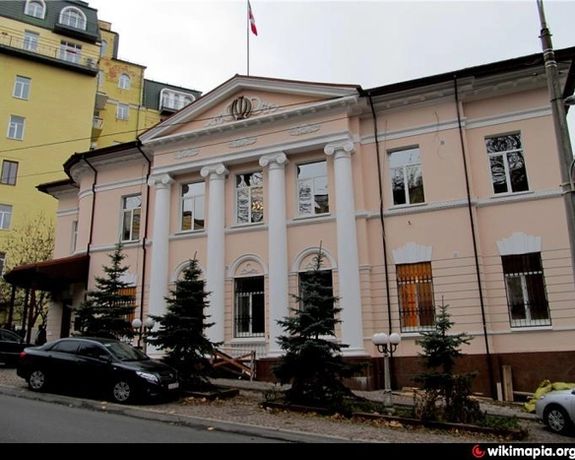
The Islamic Republic has called on Iranian nationals livening in Ukraine, especially students, to leave the country "temporarily".
Iran’s embassy in Kiev issued a statement on Wednesday as the situation in Ukraine is growing increasingly tense.
The embassy has also urged the Iranian citizens to refrain from traveling to "high-risk areas" and to “temporarily leave the country” if their presence in Ukraine is not absolutely necessary.
The statement also called on Iranians to maintain contact with the embassy for "necessary coordination in case of emergency."
Iran has blamed NATO for the recent escalation in the Ukraine crisis, calling for restraint from both sides, as Russia has moved to dismember the country.
"Unfortunately, NATO's provocative measures and interventions, led by the US, have further complicated the situation in the region” Foreign Ministry spokesman Saeed Khatibzadeh said.
President Vladimir Putin announced late Monday that Russia recognized the independence of two breakaway regions of Donetsk and Lugansk in eastern Ukraine held by separatists, practically paving the way for the deployment of Russian troops.
The decision by Moscow has triggered international condemnation and a promise of targeted international sanctions by the United States and the European Union.
An urgent meeting of the United Nations Security Council (UNSC) was held on the deepening crisis as the United States said the announcement by Putin was an “unprovoked violation of Ukraine’s sovereignty and territorial integrity”.